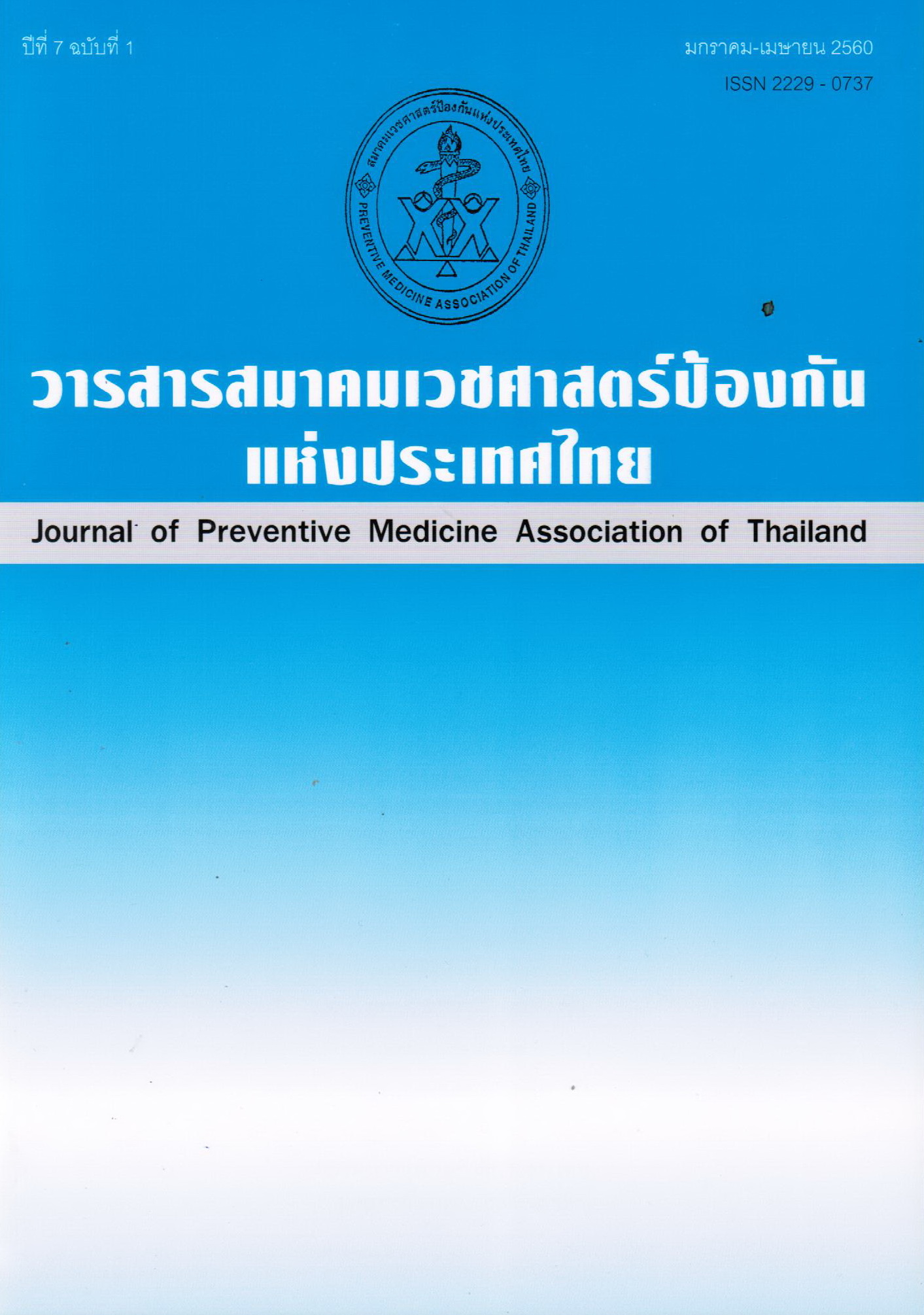Model of Organizational Culture Reinforcement by the Empowerment Process in the Generation Y Group of the Department of Health.
Keywords:
organization culture, empowermentAbstract
This research was a quasi-experimental research, one group pre-post test design. It aimed to study model for organization culture Reinforcement in generation y group in the Department of Health. Sixty generation Y personnel of the Department of Health were purposively sampling from bureaus/divisions and health promotion centers for this study. Research instruments were 3 questionnaires: questionnaire on personal data, understanding meaning of organization culture and opinion on principle of developing organization culture; and organization culture building program using Process of Empowerment of J.Lord. The empowerment process comprised of 5 steps: 1) review experience and problems, 2) create activities and awareness, 3) Skill Development, 4) grouping and expansion of results, and 5) evaluation. Descriptive statistic and paired t-teat was used to analyze data.
Result of the study were the organizational culture enhancement model of the Department of Health can be summarized as follows: Elements of activities to strengthen the corporate culture. There are 7 elements together those were (1) decentralized administration of decision making for human resources in the generations (2) deployment of work systems (3) Have the bargaining power to reduce conflict and gain understanding (4) Creating an atmosphere of open and democratic communication between the various generations with managers. (5) Developing new knowledge and skills to the personnel group (6) the team building at work group level and (7) the motivation to work by award etc. Effectiveness section revealed that after joining the process of empowerment there was statistical significant of increasing of understanding and principle corporate of organization culture at 0.05 level. In addition, results of brainstorming of behavioral indicators by using Ministry of Public Health Culture were implied to Department of Health culture: HEALTH and increased skill and leadership on campaigning to create organization culture, network and planning for continuing campaign.
References
2. กองแผนงาน กรมอนามัย. แผนยุทธศาสตร์พัฒนาระบบส่งเสริมสุขภาพและอนามัยสิ่งแวดล้อม ตามแผนพัฒนาสุขภาพแห่งชาติในช่วงแผนพัฒนาเศรษฐกิจและสังคมแห่งชาติ ฉบับที่ 12 (พ.ศ. 2560-2564). นนทบุรี: กรมอนามัย; 2559.
3. กรมอนามัย กระทรวงสาธารณสุข. ประกาศกรมอนามัยเรื่องวัฒนธรรมกรมอนามัย. นนทบุรี: กรมอนามัย กระทรวงสาธารณสุข; 2549.
4. ธงชัย เลิศวิไงรัตนพงศ์. เอกสารนำเสนอเรื่อง ร่าง-แผนยุทธศาสตร์ HR. นนทบุรี: กรมอนามัย กระทรวงสาธารณสุข; 2559.
5. Lord, J. Lives intransition: the process of personal empowerment. Hull Quebec : Disabled Persons Participation Program, Secretary of State; 1991.
6. สุนีย์ เอมดวงดี. วัฒนธรรมองค์กรกับประสิทธิภาพของการบริหารจัดการ: กรณีศึกษา สำนักงานเขตจอมทอง กรุงเทพมหานคร. ม.ป.ท.; 2554.
7. ปริโสทัต บุณณภูมิ. การศึกษาความสัมพันธ์ระหว่างการยอมรับวัฒนธรรมองค์กรและความผูกพัน ของ Generation X และ Y: กรณีศึกษาบริษัทเจริญโภคภัณฑ์. กรุงเทพฯ: เครือเจริญโภคภัณฑ์; 2554.
8. ปรารถนา ศรนุวัตร, ประจวบ เพิ่มสุวรรณ. ปัจจัยของคนเจนเนอเรชั่นวายที่ส่งผลต่อการเปลี่ยนแปลงวัฒนธรรมองค์กร. [วิทยานิพนธ์บริหารธุรกิจมหาบัณฑิต] ปทุมธานี: มหาวิทยาลัยกรุงเทพ; 2556.
9. พรรณวดี สถิตถาวร, ประจวบ เพิ่มสุวรรณ. ทัศนคติของคนรุ่น Gen Y ต่อการทำงานในระบบราชการ. [วิทยานิพนธ์ปริญญาบริหารธุรกิจมหาบัณฑิต]. ปทุมธานี: มหาวิทยาลัยกรุงเทพ; 2552.
Downloads
Published
How to Cite
Issue
Section
License
บทความที่ลงพิมพ์ในวารสารเวชศาสตร์ป้องกันแห่งประเทศไทย ถือเป็นผลงานวิชาการ งานวิจัย วิเคราะห์ วิจารณ์ เป็นความเห็นส่วนตัวของผู้นิพนธ์ กองบรรณาธิการไม่จำเป็นต้องเห็นด้วยเสมอไปและผู้นิพนธ์จะต้องรับผิดชอบต่อบทความของตนเอง






